6 Killer Games That Were Nearly Terrible

We learned that making a game that barely works is hard, even when companies force their developers into working hours that would obliterate anyone's ability to function properly. Luckily, there are developers who've faced not only the common but also some bizarre hang-ups and still managed to deliver a great product.
Note: game publishers, this is meant to poke fun at the adversities of game development, not for you to use as an excuse to consider implementing waterboarding as grind reinforcement or something ...
The Last of Us Threw Away Years Of Work On Its AI
Don't Miss
The original The Last of Us is one of the most critically acclaimed and beloved games of all time. If there's one legitimate piece of criticism players can throw at it, it's how balanced its AI is. Wait, that's supposed to be a good thing! Sorry, we meant balanced in the sense that whenever our companions flip out and start running around when they should act with stealth in mind, the enemies also go stupid and politely pretend they don't see anyone to make up for it.
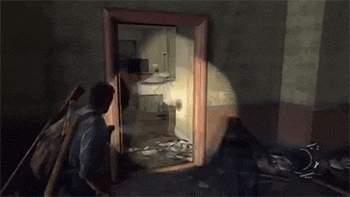
And if that looks bad, one can only imagine how bad it looked before because the developers decided to scrap all AI code they had a mere five months before launch. In the first public demo for TLOU back in 2013, we see Joel, the main character, leave his party to fight some zombies. The developers revealed that Joel's skirmish was not part of the plot but rather a desperate way of keeping players from seeing the "unacceptable" state the companion AI was in at the time. In the end, everybody noticed TLOU's AI isn't very good, but not before sending out hundreds of game of the year awards.
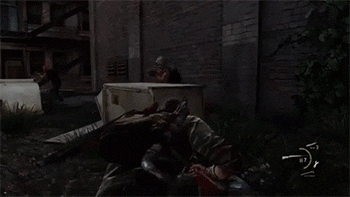
Metal Gear Solid V (for Vendetta)
In the year 2000, the seemingly mad writers at Konami predicted the world would fall prey to an authoritarian regime of the mind brought to fruition by the proliferation of echo chamber-powered information control. In 2015, Konami flipped and decided, "overbearing authority actually sounds pretty sweet." And while the developers of Metal Gear Solid V still managed to deliver the most technically accomplished game in the company's history, they went through hell to do so.
Work on MGSV was underway when what feels like a coup caused the company to enforce beyond absurd working conditions. For starters, Kojima Productions, the widely respected studio behind the Metal Gear Solid series, was defaced into "Number 8 Production Department," and its members had their internet access and even company email addresses revoked. Konami then installed cameras, not for security purposes, but to spy on workers and loudly shame those taking too long on breaks.
But Konami's evil council is not one to just break the mind and leave the spirit intact. They knew that anyone who even remotely enjoys games hates seeing them bastardized into slot machine form, so they started moving devs from game development and into their slot machine factory line.
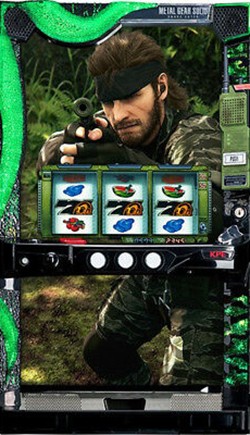
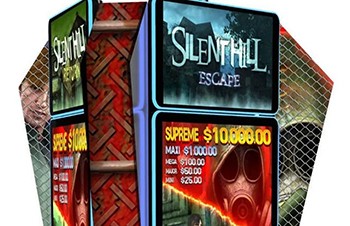
Worst of all, not even quitting would save them. One of Konami's top execs is also the chairman of one of Japan's top Health insurance companies and will allegedly be happy to blacklist any former employee from getting health benefits, even in other companies.
DOOM (2016) Was Just Going To Be More Of The Same
DOOM's 2016 series reboot caught everyone by surprise. It played like a game of old but also felt more advanced than any other shooter of its time. It's so good it inspired the resurrection of the retro-first person shooter genre.
But this came close to not happening at all. Instead of staying faithful to its core, the developers of 2016's DOOM wanted it not to inspire a lot of hell-spawned clones but to simply be a clone of another game: Call of Duty. Had it happened, DOOM 4 would have marked the second time the series rebooted in the image of something that wasn't DOOM -- the likely reason they were even having to reboot it again.
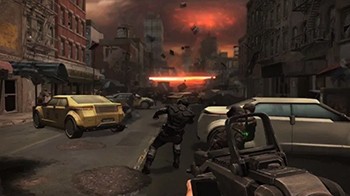
The devs were already years deep into Call of DOOMty's development, a game that was basically Pvt. Ryan vs. Predator, when they saw the light. Out of nowhere, they pulled a 180 and risked it all. The new DOOM is a faithful reinvention of the DOOM formula, a genre most players probably thought was new because they weren't even alive back when it was first popular.
The Alien Hunting In Dead Space Is Based On Actual Sports, Kind Of
When players think about the Dead Space series, they think about various awesome things: Immeasurable horror, space dementia, getting eaten by monsters, but probably never about Tiger woods, world champion of golfing, and adultery. But from now on, they will, as it's time they open their eyes to the also cosmically horrifying reality that Dead Space was born out of Tiger Woods PGA Tour.
In the likely case that you need help picturing it:

That's a picture from an EA campaign that Twitter users mocked for seemingly trying to forcefully popularize Dead Space Guy by space jamming him into other games. While the campaign didn't work to the point of getting us to google the character's name, it caught the attention of one of its developers.
Ben Johnson from Visceral Games, a studio that's also a modded spookier version of former EA Redwood Shores, replied that Dead Space is actually a modification of Tiger Woods' engine, meaning that no photoshop was involved. The team simply swapped models, as both characters live in the same messed up code universe.
In a world where various developers build engines from the ground up to fulfill a specific purpose and still end up failing, how the hell did EA (of all companies) turn a goddamn sports game into a survival horror title with such finesse?

Donkey Kong 64 Invented The Day 1 Patch (When Software Patches Weren't Even Possible)
Nowadays, Donkey Kong 64 is an unquestionable classic. Still, looking at its creation, it's clear that its studio, Rare, was up to even more monkey business than the setting and premise would lead us to believe.
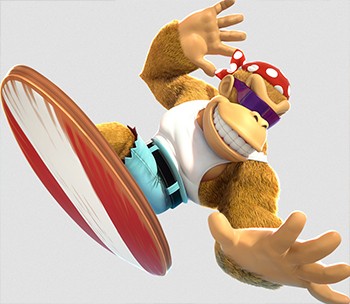
To play the original version of Donkey Kong 64, you need an add-on called the "Expansion Pak." The official explanation was that the game was "too big" for the N64's puny cartridge, though the devs later admitted it to be a total lie. In reality, the game had a bug that would randomly cause the game to crash, rendering it entirely unplayable. Back then, this was an actual problem, as developers needed to ship games in a working state. Unfortunately for the devs, they couldn't exactly pinpoint the cause of the glitch, but they knew it only happened when the game was set to the N64's 4MB RAM regular setup, meaning that an upgrade to 8MB would fix it.
The only problem with producing and giving away an adapter is that it's a bit more expensive than crunching a coder until they correct a bug or die, so the expansion pack ended up costing the company a lot of money -- that they easily made back and then some.
Vampire the Masquerade: Bloodlines Is A Nosferatu That Grew Pretty
Vampire the Masquerade: Bloodlines spent the nearly 20 years since its release convincing players it's actually a great game. Why was Bloodlines not successful from day one? Well, for one, because its development was a mess -- which is normal -- but also because of the messy development of a different game.
Bloodlines was one of the first games to use Half-Life 2's Source engine. The apparently sweet choice turned sour because the team didn't know how to work with it, and even more so when a hacker stole Half-Life 2's code forcing delays on both games. Wait. Did the developers of a literal monster simulator grow a heart and delayed their game out of kindness? Who's to say, but the official reason is that Bloodlines had the contractual obligation to release only after Half-Life 2. In theory, this was good because the Bloodlines team got time to solve some of the game's problems. In practice, however, the problems were so extensive that releasing the game later made it go from just being buggy to being buggy and looking dated.
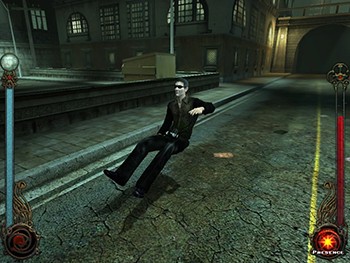
Aside from its stellar writing, Bloodlines came out in a rough shape. Still, it coming out at all only happened because the developers trusted the project so much they worked for free after the publisher cut funding. Fans then picked up where the devs had left off and launched patches that made the game so much better that further releases incorporated them as official.
Bloodlines' highly anticipated sequel is scheduled to release next year and seems to be on track to stay true to its predecessor -- at least from its equally bonkers development standpoint.
Top image: Nintendo, Konami